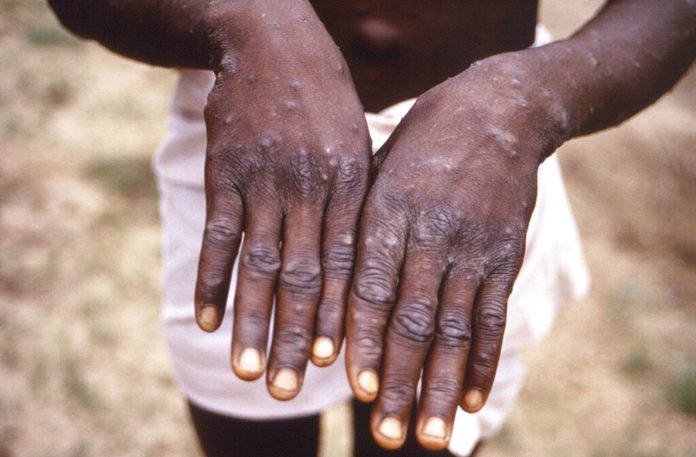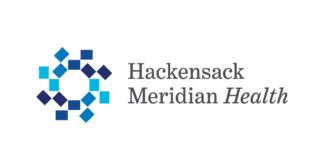
In the coming weeks, students of universities and colleges will return to campuses for the fall semester, and health care providers are concerned about the potential for monkeypox outbreaks.
Thinking of a population weary after two-and-a-half years of the coronavirus pandemic, Jennifer Brown, the director of public health for Amherst, is concerned about pandemic fatigue and what it could mean for confronting the latest public health emergency.
“People feel worn out by the pandemic and let their guard down,” Brown said in a statement to MassLive. “And then we see people come in to clinics after something gets their personal attention — for example, President Biden gets a booster, or he took Paxlovid, or a friend gets sick on a trip.”
On August 4, the Biden administration declared monkeypox a public health emergency in the United States. The Centers for Disease Control and Prevention listed 11,177 confirmed cases in the country and 202 cases in Massachusetts as of August 12. No deaths have been reported and people usually recover within two to four weeks.
Universities and colleges are using varying strategies to inform returning students and faculty about the latest on monkeypox science. The University of Massachusetts Amherst has posted an update to its website encouraging the campus community to take steps to curb the disease’s spread.
Boston University announced it would keep its COVID-19 protocols unchanged for the fall semester — including masks required on shuttle buses but not in classrooms and testing available only to those who show symptoms or have been recently exposed to the virus. The university said it will initiate steps for students and employees who contract monkeypox to follow, including infected students and employees isolating and foregoing classes or work while infectious.
Across the nation, a handful of universities have begun reporting monkeypox cases on their campuses, including Bucknell University, Georgetown University and West Chester University in Pennsylvania, according to reporting by ABC News.
In Amherst, the town’s health department is communicating with local higher education institutions on protocols for the fall semester as students return to the area.
“We will continue to work with our partners in our public health traditional role of assisting them to test, treat, isolate, contact trace and vaccinate as needed,” Brown said. First-year students at UMass are scheduled to begin moving in September 1.
Some recommendations by UMass Amherst include avoiding close contact with people who are sick or have a rash and their household items; decreasing the number of sex and intimate contact partners; avoiding gatherings where people wear minimal clothing and have direct, intimate, skin-to-skin contact and sharing items with people that might risk spreading monkeypox.
Massachusetts is distributing vaccines to 14 clinics in the state that will administer the vaccine for monkeypox. Locally, Baystate Medical Brightwood and Springfield Tapestry Health are the two closest clinics, according to Brown.
University Health Services at UMass Amherst will conduct monkeypox testing and the university’s monkeypox update states that test-takers will need to isolate until they get results.
For the fall 2021 semester, UMass Amherst provided isolation and quarantine housing for specific instances, according to a coronavirus planning guide provided to students last year. As for monkeypox, “We have limited isolation or quarantine space for individuals who test positive or are required to quarantine. As a precaution, we advise that students prepare a self-isolation kit before their arrival for the fall,” according to a statement by Edward Blaguszewski, spokesperson for the university.
A self-isolation kit should include self-care medications, prescription medications, cleaning supplies, face coverings, comfort food, comfortable clothing for 10 to 14 days, hygienic supplies, phone charger, towels and extra bed linens, according to UMass.
Now that the monkeypox outbreak is a public health emergency, federal agencies can increase the amount of potential treatments and vaccines without going through the usual federal reviews.
Last week, the U.S. Food and Drug Administration announced a new dosing approach for the vaccine so that one vial of the Jynneos vaccine can be used for five people. The U.S. Department of Health and Human Services is making a total of 1.1 million vials of the vaccine to be made available for free, according to the HHS website.
In Massachusetts, a total of 16,251 vaccines have been shipped to the state as of August 12, according to the latest available HHS data.
Even with the declaration of the public health emergency and the expediting of more vaccines, some Massachusetts residents feel access to the vaccine is still difficult. A man from the Boston area has filed a formal complaint with Attorney General Maura Healey’s Office alleging that the state’s rollout of monkeypox treatments are unjust.
For Brown, she said among her concerns for potential monkeypox outbreaks in the fall are vaccine access and the potential for stigma around the disease.
Although monkeypox is not a sexually transmitted disease, some health care providers are concerned that because it has disproportionally affected men who have sex with other men, there will be a reluctance of people coming forward to receive monkeypox treatment if the disease is perceived as only happening to gay men.
In order to get monkeypox treatment, a patient would have to get evaluated by a primary care physician and tested, according to Brown. For people without health insurance or a primary care doctor, they might not have access to treatment under the current rules.
As for the stigma around the disease, Brown is worried people will be hesitant to come forward with their concerns.
Many of the infections have involved men who have sex with other men, but the Massachusetts Department of Public Health warns the risk is not limited to the LGBTQ community.
In a memo emailed to the Boston University community, Judy Platt, the university’s chief health officer, wrote: “Although gay, bisexual, and queer men and transgender and nonbinary people who have sex with men have recently been disproportionally affected, anyone can be infected with monkeypox regardless of gender identity or sexual orientation,” the memo says. “Current messaging about monkeypox being a ‘gay’ illness creates stigma, perpetuates misconceptions, harms those who are most vulnerable, and prevents reaching all who are at risk.”
“Monkeypox … can be transmitted by any direct physical contact between someone’s rash, scabs, bodily fluids and another person, this can include sexual activity but also includes any touching of the lesions/rash between people or even touching clothing or bedding that an infected person used,” according to guidance from UMass.
Symptoms of monkeypox can include fever, headache, muscle aches and backache, swollen lymph nodes, chills, exhaustion, respiratory symptoms (sore throat, nasal congestions, or cough), and a rash that can look like pimple or blisters.
Related stories:








